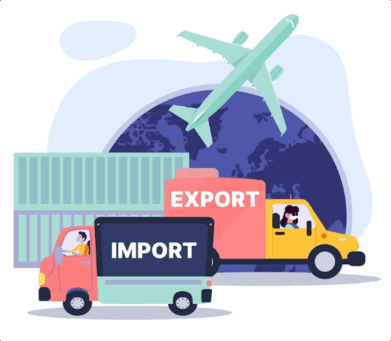 Trade Data Provider
Trade Data Provider
 2023-06-21
2023-06-21
Carrying out foreign trade requires careful preparation and attention to detail. Whether you are involved in import or export, there are several key preparations that are essential to ensure success. In this article, it will provide a comprehensive overview of the import and export preparation needed to carry out foreign trade.

Market Research
Market research is a crucial first step when preparing to carry out foreign trade. This research should include an analysis of potential markets, customer needs, and competitors. For import corporations, this research should focus on identifying countries that offer opportunities to source products or raw materials at a lower cost, while export corporations should focus on identifying countries that offer opportunities to sell their products at a higher price point.
Market research should also include an analysis of local regulations and import/export policies, as these can vary widely from country to country. For import corporations, it's essential to ensure that products comply with local regulations, while export corporations need to understand export controls, customs regulations, and international trade agreements.
Legal and Regulatory Compliance
Foreign trade involves navigating complex legal and regulatory frameworks, including import and export laws, tax regulations, and international trade agreements. Import and export corporations need to be aware of the legal and regulatory requirements of the target market and ensure compliance with all applicable laws and regulations.
For import corporations, this may involve obtaining import licenses, complying with local safety standards, and paying customs duties and taxes. For export corporations, this may involve obtaining export licenses, complying with local labeling requirements, and ensuring that products meet local safety standards.
Product Adaptation
Adapting products or services to meet the needs and preferences of the target market is a crucial step in carrying out foreign trade. For import corporations, this may involve modifying product features, packaging, labeling, or marketing materials to appeal to local customers and comply with local regulations.
For export corporations, product adaptation may involve modifying products to meet local standards or preferences, or developing new products that are specifically designed for the target market. In either case, it's essential to understand the local market and customer needs and adapt products or services accordingly.
Logistics and Transportation
Logistics and transportation are critical components of foreign trade. Import and export corporations need to have a comprehensive logistics plan in place, including transportation options, shipping routes, customs procedures, and documentation requirements.
For import corporations, this may involve coordinating with shipping companies or freight forwarders to transport products from the source country to the destination country, while export corporations need to ensure that products are properly packaged, labeled, and transported to the target market.
Financial and Currency Management
Foreign trade involves managing currency exchange rates, international payments, and financing options. Import and export corporations need to have a clear understanding of the financial implications of foreign trade and develop a comprehensive financial plan to manage these risks.
For import corporations, this may involve obtaining financing to pay for goods or raw materials, or managing currency exchange rates to ensure that payments are made in a timely and cost-effective manner. For export corporations, financial and currency management may involve managing exchange rates to maximize profits or obtaining financing to fund the production and export of products.
Cultural Awareness
Cultural awareness is an essential component of foreign trade. Import and export corporations need to develop a cultural awareness and understanding of local customs, business practices, and communication styles to effectively navigate cultural differences and build strong relationships with local customers and partners.
For import corporations, this may involve developing relationships with local suppliers, understanding local negotiation styles, and adapting marketing materials to appeal to local customers. For export corporations, cultural awareness may involve understanding local distribution channels, building relationships with local partners, and adapting communication styles to effectively communicate with local customers.
Conclusion
In conclusion, carrying out foreign trade requires a comprehensive and multifaceted approach that encompasses market research, legal and regulatory compliance, product adaptation, logistics and transportation, financial and currency management, cultural awareness, relationship building, agility and adaptability, and human resource development. By carefully preparing and taking a strategic approach, import and export corporations can successfully navigate the complexities of foreign trade and achieve long-term growth and profitability.
Category
Leave Message for Demo Request or Questions


 T-info
T-info T-discovery
T-discovery

 My
Tendata
My
Tendata Market Analysis
Market Analysis Customer
Development
Customer
Development Competitor
Monitoring
Competitor
Monitoring Customer Relationship
Customer Relationship





































































































































